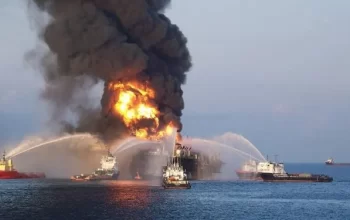Angola is well-positioned to leverage its world-class oil and gas resources to promote trade, collaboration and growth within the wider African energy economy. Set to bring about significant opportunities for the entire southern African region, the country’s participation within regional energy networks based on the creation of hubs and pipeline systems will serve as the backbone for the distribution of power and socioeconomic development between countries in the region.
Southern African Development Community
Angola is a founding member of the Southern African Development Community (SADC), an inter-governmental organization formed as an alliance of 16 southern African countries with the aim of coordinating development projects and promoting cooperation and integration to preserve economic independence.
The SADC plans and coordinates projects within the agriculture, energy, mining and trade sectors in southern Africa, prioritizing the development and improvement of regional networks amongst its member countries.
Central African Pipeline System
Under the mandate to make energy poverty history by 2030, a coalition of central and southern African nations including Angola, Cameroon, Chad, the Republic of Congo, the Democratic Republic of Congo (DRC), Equatorial Guinea and Gabon signed a Memorandum of Understanding (MoU) in September 2022 for the construction of a regional oil and gas pipeline network.
The Central African Pipeline System will comprise three multinational pipeline systems and will include hub infrastructure that features storage depots, liquefied natural gas terminals, refineries and gas-fired power plants. The pipeline system will include the Central Southern Pipeline System, which will link Angola to the DRC, Rwanda and Burundi.
Angola-Zambia Oil Pipeline
In April 2021, the Governments of Angola and Zambia signed an MoU aimed at constructing a pipeline to supply refined petroleum products from Angola’s planned Lobito Oil Refinery to Zambia’s capital city of Lusaka.
The $5 billion deal will be developed by the private sector along with Angola’s national oil company Sonangol and Zambia’s state-owned Industrial Development Corporation as strategic equity partners.
With a planned length of approximately 1,400km and expected to have a capacity of 200,000 barrels per day, the Angola-Zambia Oil Pipeline will transport petrol, diesel, kerosene and gas, thereby diminishing the price of fuel for Zambia while serving as a lucrative source of revenue for Angola.
Southern African Power Pool
Developed through the cooperation of national electricity companies in southern Africa and under the auspices of SADC, the Southern African Power Pool (SAPP) was created with the aim of facilitating a reliable electricity network in the region.
Angola is currently a non-operating member of the international agency, however, the joint construction of the planed 600 MW Baynes Hydroelectric Power Station, straddling the border between Angola and Namibia, will connect the southern African country to the network.
Additionally, the development of Angola’s Energy Sector Efficiency and Extension Program will further enable a connection to the SAPP while serving as the backbone for the distribution of power to the southern provinces of Angola and northern region of Namibia.
As Angola’s energy sector grows, these regional networks will enable the entire southern African community to benefit from the country’s oil and gas resources.
All this and more will be further unpacked during this year’s edition of the Angola Oil & Gas conference and exhibition, expected to be launched soon. Keep watching Energy Capital & Power’s website and social media channels for updates on the event!
![]()



